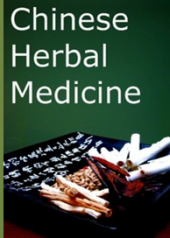
Generally speaking Traditional Chinese Medicine (TCM), is often defined as an ancient healing system dating back nearly five thousand years that sees the relationship between body and mind process as a whole integrated process.
In TCM, different aspects of life, such as our environment, our mental and emotional state, our diet and lifestyle, are equally important for a person’s well being; when balanced, these aspects lead to steady wellness, both physical and emotional.
In Chinese medical terms, all organs and vital functions are seen as one constant continuum, influencing, controlling and restraining one another.
This means that harmony (intended as healthy absence of pain and disease) depends on the good functioning of the whole body. If just one part isn't working properly, the whole organism will suffer from it.
The difference between this approach and the one in western medicine is evident: while modern Western medicine sees body and mind as separate entities (therefore treating specific diseases with particular drugs, and searching for certain micro-organisms to be wiped out of our bodies), TCM uses natural approaches to restore balance, never separating the person from the mind or the environment. While western medicine often denies the interaction and reciprocal impact of body and mind, TCM aims to restore balance between the two.
We all know how specialised western medicine has become in the past decades: we now have doctors, therapies, cures and prescriptions for literally every little part of our body. For every single issue, we need to see a different specialist, and buy drugs that often cause adverse reactions between each other.
This approach derives from a conception that was quite common in the Western World, during the 17th and 18th Centuries: the body was viewed as a machine, where its single components could be taken out, analyzed and repaired, to ensure the good functioning of the whole system.
The approach of TCM to our health on the other hand, is at the opposite end of the spectrum: there is no other way to restore health but treating the body as a whole entity. The interaction between all body parts is crucial in understanding why TCM works and why it is so different from western medicine.
Another important difference may be found in the approach to pain: most modern medications simply tend to shut down the pain, providing temporary relief, while the causes of the problems remain deeply rooted in our body. TCM on the other hand, views pain as an evident symptom of an "energetic blockage" (a stop, in the natural flow of our body's energy), and treats it directly. Ignoring the pain, or simply numbing it, wouldn't produce any real benefit.
TCM treats the whole person, not simply the disease or a part of it; its focus is on prevention rather than letting problems arise and then having to find a cure.
An health assesment in Traditional Chinese Medical can detect subtle imbalances in the body before they reach the disease stage, and before Western medical tests can detect any abnormalities.

